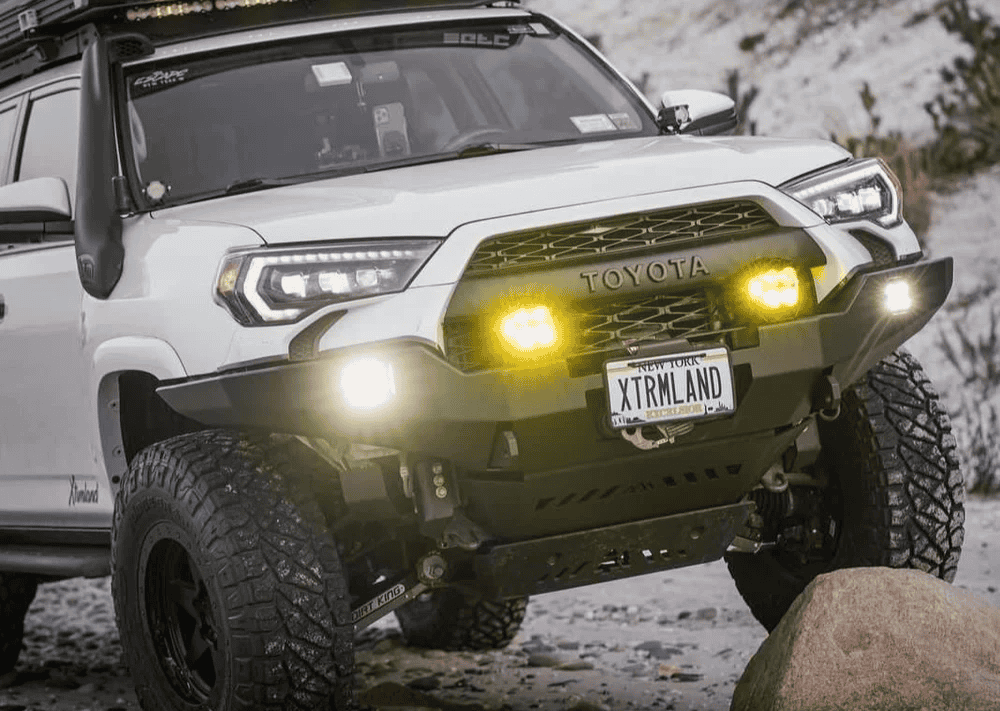Overland Vehicles

DIY overland truck kits aim to organize gear, add power, and support life on the trail without turning your bed into a storage avalanche. A typical kit combines a rack system for roof tents or cargo, a drawer solution for tools and kitchen gear, and protection like skid plates or bumpers where appropriate. Many builds include a dual battery setup, portable water storage, and area lighting so camp tasks feel as simple as a backyard cookout. The best kits are modular, letting you add or remove components based on season or trip length. Keep the core simple, then layer capability over time.
Drawer systems tame loose gear and keep weight low. Look for full extension slides, marine grade latches, and tie down points that match your heaviest items. Soft bags inside drawers reduce rattles and make it easy to carry kitchen kits to a picnic table. Up top, a quality rack should spread loads to factory mounting points and accept accessories like shovel mounts, traction board brackets, and bike trays. Pack dense items close to the cab and centered to help handling on rough roads.
Overland power usually starts with a house battery and a DC to DC charger fed by the alternator. Lithium batteries offer deep reserves for fridges and inverters while keeping weight in check. Add a fused distribution block, proper cable sizing, and a clean ground strategy for reliability. Solar blankets or panels can maintain charge at camp. Plan for voltage drop and heat, then protect wiring with abrasion resistance and grommets anywhere a wire passes through metal.
Think of your truck like a backpack. Big essentials ride near your center of gravity, small items fill the edges, and everything has a repeatable place. Start with a weight budget by checking payload on the door sticker, then subtract passengers, pets, and fuel to reveal what your kit can actually weigh. Choose components that fix to existing mounting points when possible and distribute loads across multiple fasteners. A strong build uses bolts and brackets sized for real trail loads, not just smooth pavement.
Water and cooking benefit from simple systems that are easy to clean and service. Portable tanks and jerry cans make resupply easy in small towns. A compact pump with a quick connect faucet turns tailgate meal prep into a routine rather than a chore. Ventilated propane storage and leak checks matter for safety. For cold storage, a compressor fridge paired with a slide and tie downs beats ice melt and keeps food consistent across long miles.
Fit tires for your terrain and weight. All terrain patterns handle mixed conditions well, while load ratings should match your final curb weight. If you add a constant load like drawers, water, and a tent, consider springs designed for that weight rather than spacer lifts. Quality shocks control heat and chatter on washboards and reduce driver fatigue. Aim for a neutral stance and alignment that protects tire life at highway speeds.
Recovery planning starts before you ever need a strap. Traction boards, a rated hitch point, soft shackles, and a quality rope cover most light recoveries. Pair that with a shovel and a small air system for tire repairs or pressure adjustments as surfaces change. Lighting should prioritize area lights at camp and aimed driving lights that avoid glare in dust or fog. Label circuits and carry spares for fuses and essential hardware so small faults do not become trip enders.
Maintenance keeps a kit honest. Dust can foul latches, slides, and chargers, so clean and inspect moving parts after big trips. Retorque brackets, check water fittings, and look for chafe points in wiring. A tidy build with documented circuits and fastener sizes means you can diagnose issues fast when miles from home. Keep paperwork in a dry pouch so warranties and specs are always at hand.
Well designed kits feel invisible in use. You reach for a stove and it is right where it should be. You wire a new light and the bus bar is labeled and accessible. The truck drives straight, rides predictably, and stops without drama when the road goes from smooth to broken.
When you are ready to move from a rough plan to a finished, trail ready rig, proven installation and clean integration make all the difference. If you prefer a professional build that reflects these principles, explore options with experts who live and breathe this world. See platforms and approach on Explore overland rigs, review tailored packages through Custom overland upfit, and learn what sets the team apart at Why choose OZK Customs. Our Fayetteville Arkansas location makes pickup and shakedown effortless, with trails and camp spots nearby so you can test, tune, and head out with confidence.
Ready for a truck that works as hard as your itinerary. Share your goals and timeline and our team will map a clear path to a reliable, trail proven build. From precise layouts to clean wiring and strong mounts, we turn ideas into dependable rigs you can pick up in Fayetteville and point toward the horizon.
ADDRESS:
6159 E Huntsville Rd, Fayetteville, AR 72701
PHONE:
(479) 326-9200
EMAIL:
info@ozkvans.com